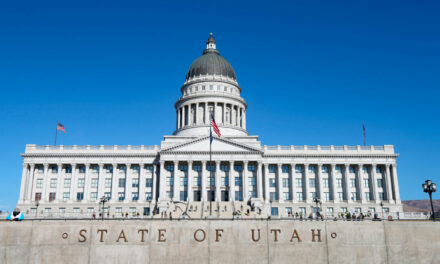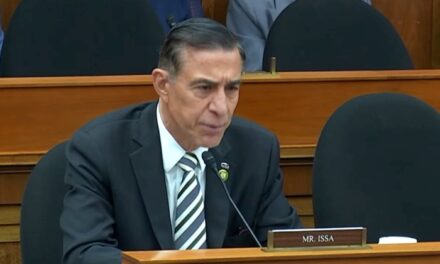We support our Publishers and Content Creators. You can view this story on their website by CLICKING HERE.
Boeing CEO Dave Calhoun appeared before the U.S. Senate on June 18 to discuss the company’s safety culture after a January airplane incident that increased public and regulatory scrutiny on the aerospace company.
He began his opening remarks by turning to face and apologize to the family members of the 2018 and 2019 737 Max crash victims who were seated in the audience behind him.
“I would like to apologize on behalf of all of our Boeing associates spread throughout the world, past and present, for your loss,” Mr. Calhoun said.
“I apologize for the grief that we have caused, and I want you to know we are totally committed in their memory to work and focus on safety for as long as long we’re employed by Boeing.”
The Senate Permanent Subcommittee on Investigations’ hearing probed Boeing’s response to a Jan. 5 incident where an unused door panel blew off a recently manufactured 737 Max 9 right after takeoff on an Alaskan Airlines flight.
Lawmakers on both sides of the aisle grilled Mr. Calhoun on not just Boeing’s public and internal plans to increase safety, but what he has done in his position as the company’s lead since he took over for departing CEO Dennis Muilenberg in 2020.
The Federal Aviation Administration (FAA), the National Transportation Safety Board (NTSB), and the Justice Department have opened separate investigations into the company after the blowout incident.
“From the beginning, we took responsibility and cooperated transparently with the NTSB and the FAA in their respective investigations,” Mr. Calhoun told the committee.
“In our factories and in our supply chain, we took immediate action to ensure the specific circumstances that led to this accident could never happen again.”
The CEO also acknowledged that Boeing and its controversial Maneuvering Characteristics Augmentation System (MCAS), installed on the 737 Max—but initially hidden from airlines, pilots, and the FAA—were responsible for the 2018 and 2019 crashes that killed 346 people.
“MCAS and Boeing are responsible for those crashes,” he said to Sen. Richard Blumenthal (D-Conn.).
Mr. Calhoun added that the crashes prompted Boeing to install a new safety management system “into every airplane that flies every second of every day.”
However, Mr. Blumenthal expressed frustration with Boeing’s promises to elevate whistleblower claims and prevent retaliation against them from Boeing managers and supervisors.
The senator cited concerns from deceased Boeing whistleblower John Barnett, who reported that his supervisor called him 19 times in one day and 21 times another day after the whistleblower went public with concerns over the company’s safety culture.
“When Barnett asked his supervisor about those calls, he was told, ‘I’m going to push you until you break,’” Mr. Blumenthal said.
“He broke,” Mr. Blumenthal said, referring to Mr. Barnett’s suicide after facing months of internal pressure from Boeing.
The CEO said company policy is to “cite and reward the people who bring issues forward, even if they have huge consequences on our company and our production levels.”
The senator then asked Mr. Calhoun if Boeing had fired any supervisors or managers “for retaliating against people who speak truth to power about defects or problems in production” within the company’s manufacturing.
“Senator, we have fired people and disciplined people,” the CEO confirmed.
He said he would “follow up” with the committee on who was fired or disciplined and why.
This is a developing story.

 Conservative
Conservative  Search
Search Trending
Trending Current News
Current News 







